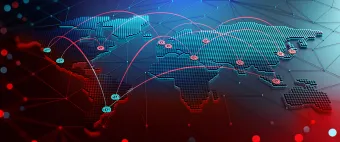Digital Geopolitics: A Review of the Current State

Digital Geopolitics: A Review of the Current State
The purpose of this research product is to present the current state of digital geopolitics. Digital Geopolitics is attracting much attention. It features in national digital strategies (for those countries that have those), and there is some research on the topic. However, until now, no systematic and up-to-date review of the scientific literature on digital geopolitics exists. This article reviews the scientific literature using the computational literature review method. 124 articles were identified in a scientific database. After removing articles without author and abstract, 120 articles remained to read, cluster and present in this research product. The findings present that research output increases from 2015 and onwards, 53 topics are covered in the data set, and top cited articles and top publication venues are presented. The answer to the research question is that based on the results and the manual clustering of topics, it is indicative that the Technology, Informational, Geography are Security areas have a high focus, with less focus on, for example, political and health areas.
Mr Gazmend Huskaj is Head of Cyber Security at the Geneva Centre for Security Policy (GCSP). He was previously a doctoral student in Cyberspace Operations at the Swedish Defence University. Additionally, he was Director of Intelligence on Cyber-related issues in the Swedish Armed Forces. Prior to that, he was Head of the United Nation's Intelligence Cell in a mission area for several years. He is a military Veteran, with more than five years of duty in conflict and post-conflict areas including two tours to the Balkans and one in Central Asia. He holds a two-year Master of Science in Security & Risk Management from the University of Leicester, and a two-year Master of Science in Information Security from Stockholm University.
Disclaimer: This publication was originally published on International Conference on Cyber Warfare and Security. The views, information and opinions expressed in this publication are the author’s/authors’ own and do not necessarily reflect those of the GCSP or the members of its Foundation Council. The GCSP is not responsible for the accuracy of the information
